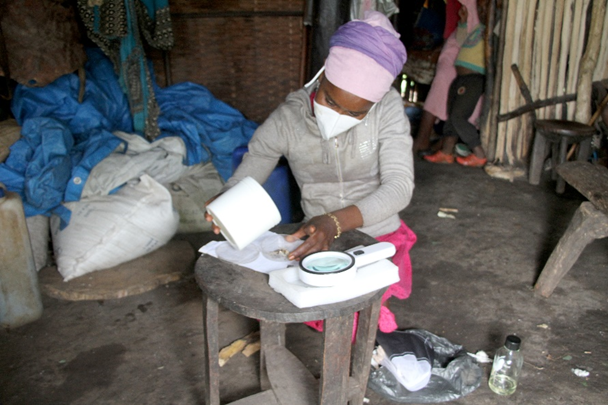
To sustain and expand the success of vector control to prevent malaria transmission, decision makers need up to date, detailed entomological data at a fine scale. This data must describe the relative geographical and temporal distribution of malaria-transmitting mosquitoes and their feeding and resting habits to inform the right implementation approaches for indoor residual spraying, insecticide-treated net distribution, and other vector control tools. Entomological data needs to be aggregated and managed at a level that is informative for locally adaptive vector control interventions. The ability to collect these data in hard-to-reach locations can be restricted by national malaria program capacity and a shortage or attrition of trained professionals. Community-based entomological surveillance (CBS) presents an opportunity to increase data collection and sample sizes in remote regions and to fill gaps in capacity needs, in a way that may be more cost-effective and sustainable than conventional approaches.
The U.S. President’s Malaria Initiative VectorLink Project’s CBS Curriculum was developed to train local community members in the skills needed to conduct mosquito monitoring. The resources below are categorized for the training of community mosquito collectors and district focal persons. For each training, materials are organized by resources to facilitate the training, knowledge and feedback forms, and a model certificate of completion. Community mosquito collectors and district focal persons will discuss why vector control is important, the lifecycle of a mosquito, identifying the type of mosquito, and various collection methods. District focal persons will also be trained in community engagement, supervision, and insecticide resistance monitoring.
Community-based Entomological Surveillance Curriculum for Mosquito Collectors
- Facilitator Guide
- Proposed Agenda
- Participant Workbook
- Day 1 Slide Deck
- Day 2 Slide Deck
- Workshop Review Slide Deck
- End-of-Course Feedback Form
- Community Mosquito Collectors Pre-Test
- Community Mosquito Collectors Post-Test
- Community Mosquito Collectors Pre-/Post-Test Answer Key
- Certificate of Completion
Community-based Entomological Surveillance Curriculum for District Focal Persons
- Facilitator Guide
- Proposed Agenda
- Participant Workbook
- Day 1 Slide Deck
- Day 2 Slide Deck
- Your Role and Community Communications Slide Deck
- Training Adults Slide Deck
- Giving Feedback Slide Deck
- WHO Bioassay Slide Deck
- Supervision Slide Deck
- Workshop Review Slide Deck
- WHO Tube Test Record Form
- End-of-Course Feedback Form
- District Focal Points Pre-Test
- District Focal Points Post-Test
- Certificate of Completion
- Supervisor Checklist

